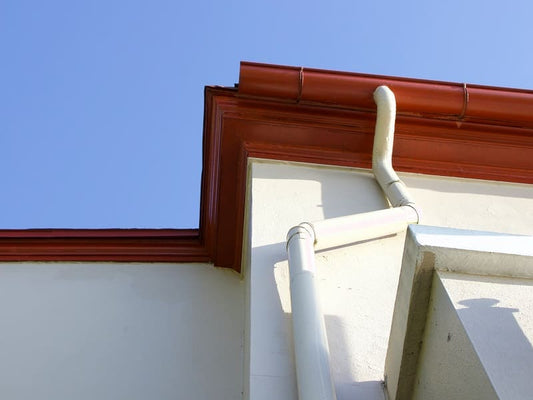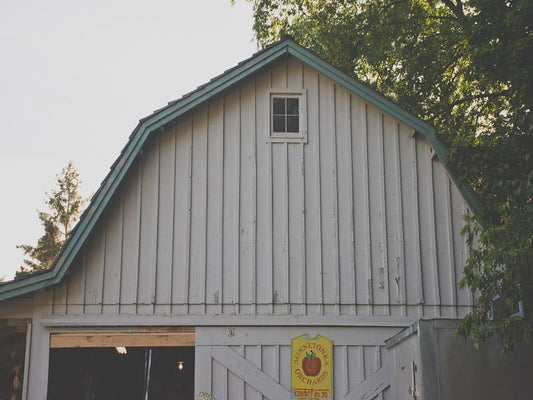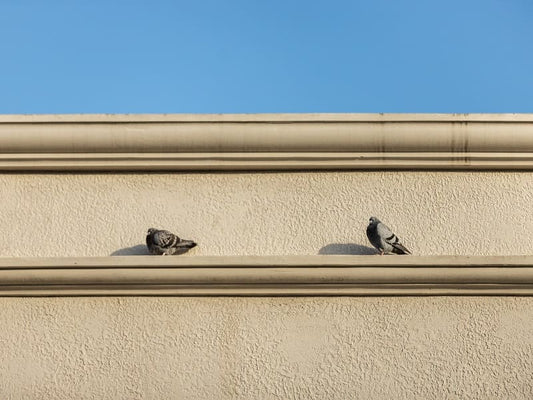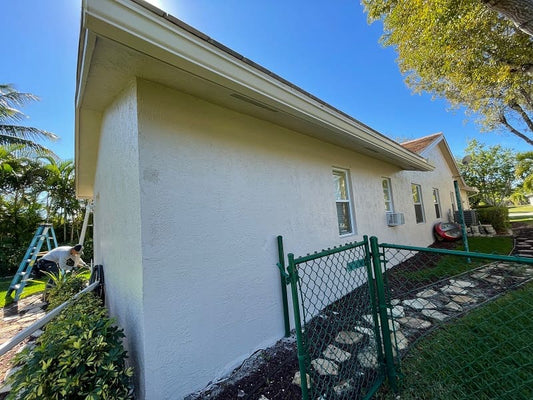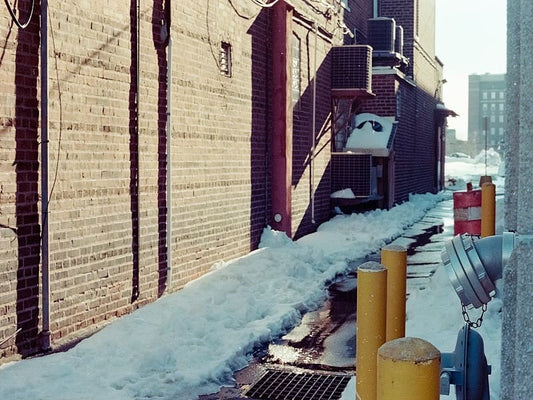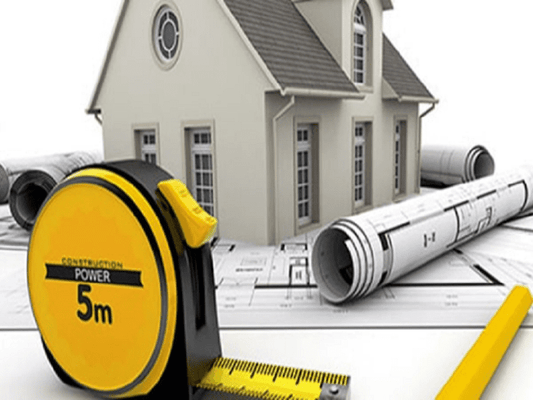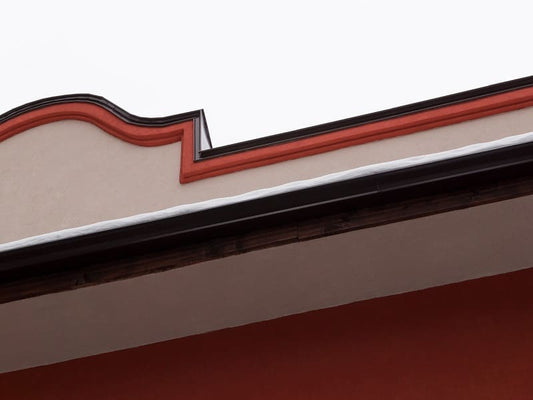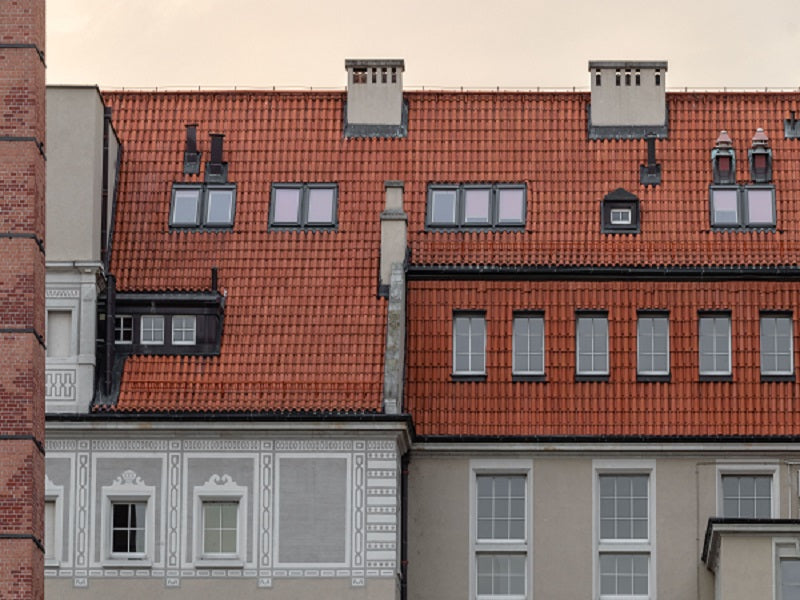
Do You Need Gutters? Exploring the Essential Home Drainage System
Do You Need Gutters? Exploring the Essential Home Drainage System
It's hard to picture a home without gutters, much like a hero without a shield. Gutters protect your property from extreme weather by channeling water away from the foundation. But do you need Gutters?
Absolutely! Gutters are more than simply a pair of long tubes made of metal or plastic; they are a crucial part of your home's defensive system. Gutter systems valiantly gather rainwater and direct it away from a building's base when the skies open up. This may seem like a little chore, but it is essential to the safety of your home.
Rainwater would easily flow down the walls without gutters, undermining the foundation over time. The results might be catastrophic, including leaks, fissures, and even structural damage. So, do you need gutters?
Why Do You Need an Effective Drainage System?
Houses must have a proper drainage system. It helps keep water from pooling and causing structural, masonry, and horticultural damage. Redirecting rainfall away from homes prevents flooding and mold growth.
Rainwater not properly draining from the roof might collect close to the foundation, leading to instability and damage. As a result, mold and mildew may grow, posing health risks and requiring expensive repairs.
A solid drainage system is an investment that pays off in the form of a dry, safe house, reduced insurance premiums, and a higher resale price.
Understanding the Need for Gutters:
Gutters are essential for a home's foundation's safety and surrounding landscape. Water from rain may severely harm a house if it doesn't have channels to direct the water away from it.
1. Preservation of Your Home:
For starters, gutters keep a house's foundation and walls dry by diverting rainfall away. Rainwater pours down the roof like a torrent. Water that collects around the foundation without gutters may erode and cause structural damage.
It may also leak into the basement, leading to wetness and sometimes even floods. This water damage may be costly and can put the whole property at risk.
2. Protecting Landscaping and Surroundings:
Gutter systems also shield a home's landscape from damage. Without drainage, precipitation may erode the soil surrounding a home, washing away plants, mulch, and topsoil. Ugly gullies and ditches may appear in your yard due to erosion.
Water runoff causes erosion and damages flowerbeds, lawns, and bushes, making it more challenging to maintain a friendly environment surrounding the home.
Gutters prevent flooding and structural damage by collecting rainfall and channeling it to drains. The downspouts divert the water from the home and the landscape. This prevents the landscape from deteriorating where costly repairs are necessary.
Factors Influencing the Need for Gutters
Climate, environmental variables, and architectural design all have a role in determining whether gutters are necessary. Whether you want to know whether your home needs gutters for efficient rainfall management, this information is vital.
1. Environmental and Climate Factors:
Whether gutters are necessary for a home depends heavily on the local climate and other environmental factors. Gutters are essential in rainy or storm-prone areas because they channel water away from the house's foundation.
Flooding and erosion are possible outcomes of water buildup in flood-prone areas. However, gutters may be unnecessary in dry, low-rainfall areas where water runoff is a minor issue.
Factors like landscape slope and soil permeability also affected gutter installation. Water drainage from homes built on steeper terrain may be more rapid, making gutters a need for reducing the risk of soil erosion.
However, channels may be unnecessary on properties with well-draining soil since that soil may easily absorb rainwater.
2. Architectural Considerations:
We need to install gutters to meet the structural requirements of homes. Their layout and construction affect a home's rainwater management. We can reduce the need for complex gutter systems in homes with eaves, overhangs, or sloping roofs that channel rainwater away from walls and foundations.
Some contemporary design elements include integrated approaches to handling rainfall, eliminating the need for conventional gutters.
The inclusion of a well-designed drainage system or strategically placed landscaping features can reduce the need for substantial gutter installations. Some homes may not require gutters if built on a slope that directs rainfall away from the structure.
Common Misconceptions about Gutters:
It's vital to dispel certain myths regarding gutters so that homeowners may have a correct understanding of their function and value. It's crucial to remember that channels aren't required in every situation and won't solve all water problems.
Dispelling these myths requires appreciating gutters' role in a house's drainage system. Despite their usefulness in various contexts, they are only necessary sometimes. Whether trenches are required depends on multiple factors, including weather, location, and the structure's design.
a. Gutters Are Always Mandatory
Does your house need gutters? There's a common misconception that gutters are essential for every house. Guttering may help collect rainwater, although it's only sometimes necessary. Water runoff from roofs is usually a minor issue in dry climates.
Therefore, gutters may be optional there. Houses with natural drainage systems, such as well-planned landscaping or sloping terrain, may not need gutters to channel water away from the structure's base.
b. Gutters Eliminate All Water-Related Issues
Another common misunderstanding is that gutters would solve any water problems. Gutters are an essential part of a drainage system but only function as one part of the whole.
Efficient water management depends on several factors, including downspouts, correct grading, and strategic planting. Downspouts collect water from the gutters and carry it away from the home.
However, water issues may still arise if the downspouts are blocked, or the grade surrounding the house needs to be improved.
Alternatives to Traditional Gutters
There are sustainable alternatives to conventional gutters that are just as efficient at collecting and reusing rainwater. You may install rain barrels or cisterns or use suitable sloping and grading methods to collect rainwater.
Rainwater Harvesting Systems
As a more eco-friendly substitute for gutters, rainwater harvesting devices like rain barrels and cisterns collect and store precipitation for later use. Strategically positioned rain barrels or cisterns catch runoff from the roof for last use.
Using this, we can repurpose rainwater collected from rooftops or gutters. This method cuts water costs and lessens the burden on local water supplies. Harvesting rainwater helps the environment by decreasing the amount of stormwater runoff, which may be a source of pollution and cause drainage systems to become overburdened.
Sloping and Grading Techniques
Without gutters, grading and slope techniques in landscaping can control rainfall. Proper grading ensures precipitation from the structure by sloping the earth away from the house's foundation.
It keeps water from collecting and perhaps causing problems near the foundation. Using swales or berms in your landscape design may help water drainage. To divert water away from home, you may use swales, shallow ditches, ridges, or elevated mounds of dirt.
Conclusion:
Do you need gutters? In conclusion, gutters are vital in properly channeling rainwater away from a house's foundation and landscaping to avoid costly repairs. Climate, ecology, and aesthetics all have a role in determining whether they are necessary.
Installing gutters should be based on thoroughly evaluating each property's unique characteristics. To adequately address each circumstance, it is necessary to understand local weather patterns and make educated decisions.

